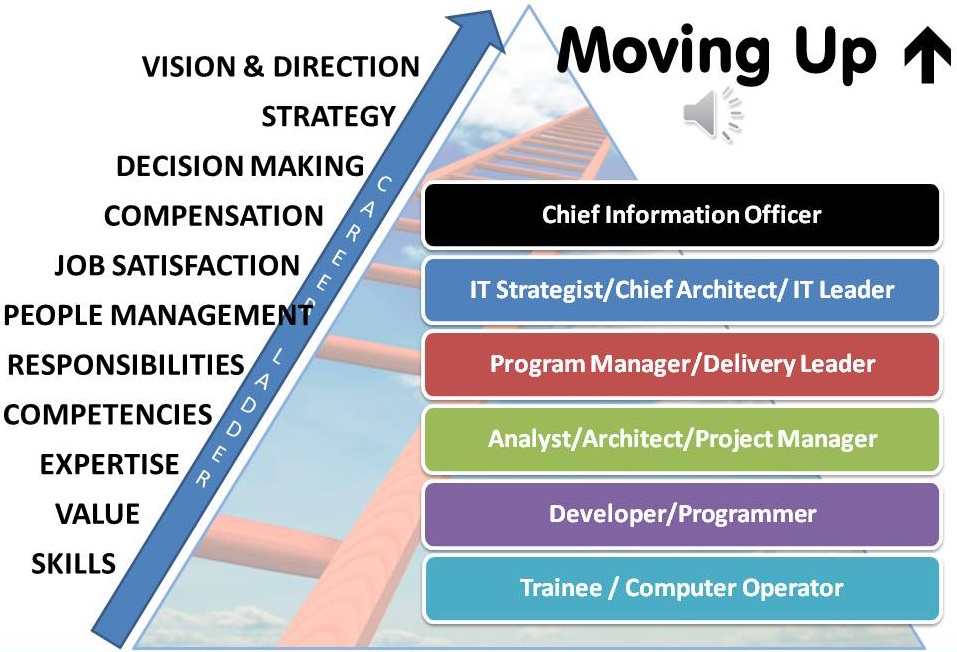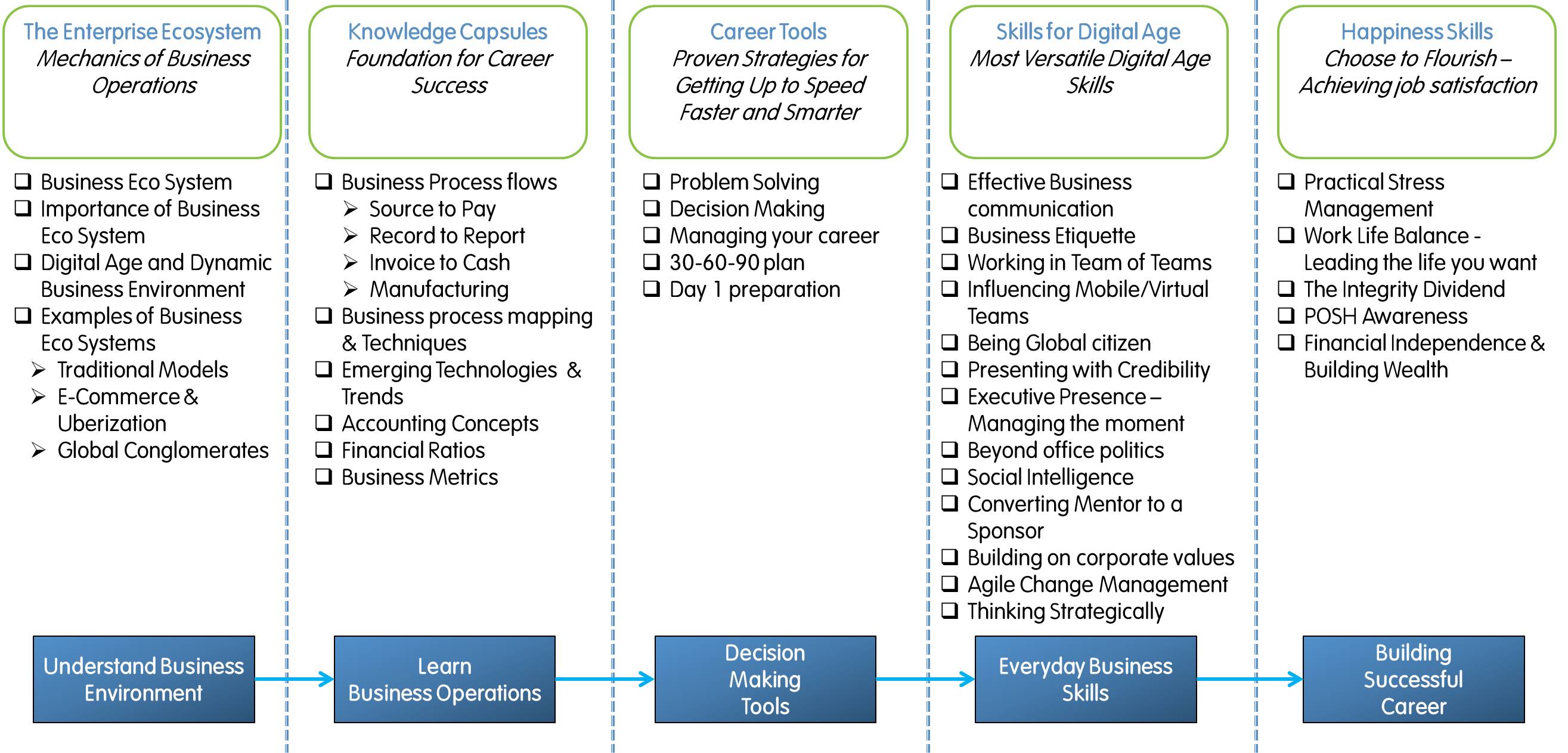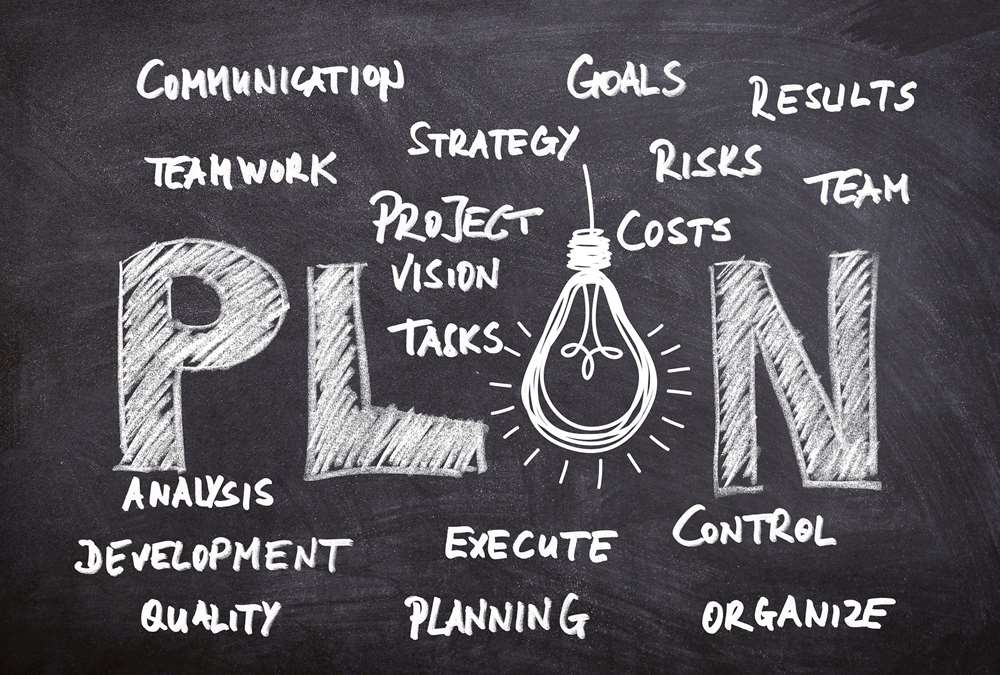- Home
- Business Processes
- Industry Knowledge
- Aerospace Industry
- Automotive Industry
- Banking Domain
- BFSI Industry
- Consumer/ FMCG Industry
- Chemicals Industry
- Engineering & Construction
- Energy Industry
- Education Domain
- Finance Domain
- Hospitality Domain
- Healthcare Industry
- Insurance Domain
- Retail Industry
- Travel and Tourism Domain
- Telecom Industry
- Leadership Skills
- eLearning
- Home
- Leadership Skills
- Career Management
- Tips for Career Progression
Tips for Career Progression
Navigating your career journey will hopefully include a series of experiences that challenge your skills and abilities in ways that are satisfying and rewarding. Only you can manage your career. That means you must determine what things you are passionate about, what your goals are, both professionally and personally, and how much energy you are willing to invest along the way. Learn how to build an effective career path framework for yourself.
This article will guide you through a process that will assist you in learning more about yourself and your career. You will think about your personal work history, your unique talents and passions, and consider a path that corresponds with your opportunities for growth and advancements.
The Bar is rising
Why it takes time for a professional to move from lower to higher roles. What is it that is changing as you are growing in the ladder? As you start maturing into senior leadership roles you improve on your technical skills both in depth and breath. Given below are some of the expectations that change as you move up the ladder:
- You start adding more value and bring more expertise on table.
- You gain more competencies that drive you towards acquiring leadership and management traits.
- Your responsibilities continue to grow and your leaders expect more and more from you.
- You start managing others and need to learn people management skills
- As you grow higher you job satisfaction levels increase.
- Your compensation also continues to grow and you will be surprised that it does not really matter the way it used to be.
- You are expected to take decisions and bear the responsibility of their success and failure. You are expected to evaluate risks and opportunities.
- You become strategic at the top of the pyramid and now people look at you for their answers.
- You need to provide thought leadership and set directions, goals and objectives for your department
- You need to set the vision and direction for your organization.
- You motivate and people follow and execute your dreams.
How do you achieve this transition smoothly? How do you ensure you have the necessary skills when you are making career jumps? You can do by doing career planning and having a career progression framework with you.
Developing a Career Path Framework
Ever wondered if your current career path is the right one? There can be a big discrepancy between the career you thought was a good fit for you and the career that is actually right for you. So, how do you tell what you should be doing?
Career development planning and building career-path frameworks can sound boring but at an individual level, you should work to define a career path framework for yourself. The career progression framework will be used to define the possible roles and titles that you want to move into as you build your career and shows possible roles and competencies needed for those roles. Start putting together a framework by answering the following questions:
Who Am I?
- What do you enjoy most about your work?
- What would you like to do more or less of in your current job?
- What are your personal work/life priorities?
Where Am I?
- What are you known for in your current organization – what is your personal brand?
- Is the culture and climate of your existing organization a good fit?

What’s Coming/Changing?
- What trends in your industry, function or domain will impact your career choices in the future?
- Are there major changes in your personal life that will impact your career decisions?
- How do you think changes in technology will affect your role in the next several years?
Where are You Going?
- What new skills and competencies would you like to develop?
- What are your long term career aspirations?
- Where do you see yourself in 2, 5 & 10 years?
What are the Expectations?
- What kinds of role expectations might there be for the role you are considering?
- What do you think you need to do to be ready for your next job?
- Is your current image requires any modification to help you achieve your career goals?
How am I Going to Get There?
- What kind of experience or job profiles will you need in your resume to achieve your goal?
- Who else will you network with for feedback and input on your plan, who are your sponsors?
By doing an honest evaluation of your skills, strengths, and weaknesses you will gain clarity on actions you need to take to meet your career aspirations. Most people don’t know what they’re good at. The questionnaire above can help you gain a neutral perspective about your strengths and weaknesses and help you realize your talents.

Explore Technofunc Toolkit for Technical Leadership
Technofunc resources aim at bridging the gap between technical and functional expertise and have invested a lot of effort into creating tutorials on various business processes and industry knowledge. Our curriculum is designed to equip a person to leverage technology as well as learn critical business application processes along-with system integrity and security, systems audit, project management, and other key methods widely used today that helps in the integration of business processes and practices in tune with the requirements that are driven both by business, globalization and legislature. We help you gain expertise in both technical and functional skills, which when applied collectively comprise of professional competence and excellence.
Given below are the different technofunc resources to start building your technical leadership skills:
Build Domain Skills
- Aerospace Domain
- Automotive Domain
- Banking Domain
- BFSI Domain
- Consumer / FMCG Domain
- Chemicals Domain
- Engineering and Construction Domain
- Energy Domain
- Education Domain
- Financial Management & Business Dynamics
- Global Markets Domain
- Hospitality and Leisure Domain
- Healthcare Domain
- Insurance Domain
- Technology Domain
- Retail Domain
- Travel Domain
- Telecom Domain
“The difference between great people and everyone else is that great people create their lives actively, while everyone else is created by their lives, passively waiting to see where life takes them next. The difference between the two is the difference between living fully and just existing.”
- Michael E. Gerber
Related Links
You May Also Like
-
Functional skills are the core competencies that can be transferred to different work areas like understanding of finance is independent and a finance expert can comfortably adapt to a manufacturing or service industry. Functional skills are obtained by understanding the various processes and the principles applicable to a business function. Functional experts are in great demand as they are specialists and required to manage the business processes like human resources, operations, or finance.
-
Reasons behind Wastage of Time
Under-utilization of time may be due to the faulty system or faults of manager/officer/leader or due to lack of planning. There could be many factors driving the procrastination behavior like system issues, personal work habits, and lack of delegation, personality traits, and bad working habits of the leader, failure to tackle interpersonal conflicts, obstacles, and lack of far-sightedness.
-
A good leadership style is something that every effective leader must have in order to succeed, but identifying what that entails or does not entails might be difficult to understand. Most of the research on leadership focuses on the exemplary, best practices, and positive attributes of effective and successful leaders. This article talks about a new approach to learn leadership using lessons from bad leadership. That is the lessons to be learned by examining leaders who have not effectively exercised their power, authority, or influence.
-
Stress is a product of the busyness of modern life. It has assumed grave dimensions ever since the emergence of industrialism. In fact, stress is a natural, ongoing, dynamic, and interactive process that takes place as people adjust to their environment. Stress can be brought about by positive or negative life events. Distress can cause disease and eustress or positive stress can promote wellbeing and increased productivity. Learn to recognize and be responsible for your stress, and learn the ways to manage stress.
-
Improving Skills & Competencies
Whenever you are looking for a job or having your yearend discussion with your manager, two terms generally referred to be “Skills” and “competencies”. Today success in a career is an outcome of having essential competencies and building required skills. Skills could be a major distinguishing factor for you to move up on the career ladder and jump from one role to another. Leadership skills when combined with relevant domain and functional expertise can transform your entire career growth and help you have a fulfilling career.
-
Robert Katz identified three leadership skills called - technical skills, human skills, and conceptual skills as the basic personal skills essential for leadership. Leaders must possess these three skills that assist them in optimizing a leader's performance. Technical skills are related to the field, human skills are related to communicating with people and conceptual skills related to setting the vision.
-
Time management is the process of planning and exercising conscious control of time spent on specific activities, especially to increase effectiveness, efficiency, and productivity. The best time management techniques improve the ways you work. Time management refers to managing time effectively so that the right time is allocated to the right activity. Learn more about the five steps for effective time management viz. study, identify, analyze, decide, and implement.
-
Authentic leadership is an approach to leadership that emphasizes building the leader's legitimacy through honest relationships with followers which value their input and are built on an ethical foundation. The authentic leader acts upon his or her values and beliefs, and inspires others to do the same, is committed to know and develop oneself. Are you committed to developing yourself; know your motivations and the purpose of your leadership? Read this article to know more about authentic leadership style and discovering your authentic self.
-
Understanding Corporate Strategy
Management outlook and procedures have been revolutionized by more and more innovations over the recent years. It is no longer possible to follow traditional approaches to develop your organization's direction, its management as well its effectiveness. Senior managers need to be good decision-makers. In this section, we introduce concepts for strategy, strategic planning, strategic leadership, their exact meaning and associated terms, and how to use them.
-
Develop your Leadership Skills
There are a number of broad skill areas that are particularly important for leaders. Today's demanding global business landscape is defined by relentless change and rising business complexity, bringing new challenges. Leadership skills provide career-enhancing resources and support you to be exceptionally successful in your career. Leaders need to provide direction to their teams and need to be able to make good and timely decisions to define and support strategic direction for the enterprise.
Explore Our Free Training Articles or
Sign Up to Start With Our eLearning Courses

About Us
Learning
© 2023 TechnoFunc, All Rights Reserved










